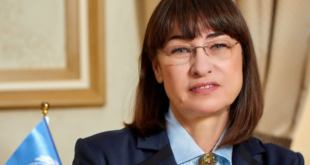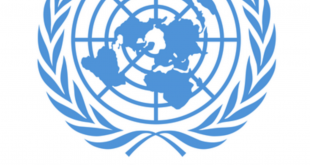Egypt Independent
A United Nations appeal for aid to Yemen to alleviate the world’s worst humanitarian disaster raised no more than $1.7 Billion on Monday, a result the UN chief called “disappointing.”
At a virtual pledging conference co-hosted by Sweden and Switzerland, UN Secretary-General Antonio Guterres had appealed for $3.85 Billion this year to address the impoverished Arab country’s dire needs.
“The amount raised, however, was less than half what was asked for and less than what the UN received last year, and one billion dollars short of what was pledged in the 2019 conference”, Guterres said.
He called countries to “consider again what they can do to help stave off the worst famine the world has seen in decades”.
From the outset, it was unlikely that donors would meet the UN’s goal given the coronavirus pandemic and its devastating consequences for economies around the globe. Corruption allegations in Yemen aid operations were also a factor.
War in Yemen began in 2014, when the Iran-backed rebel Houthis seized the capital, Sanaa, (albeit with insidious acquiescence of deposed president Ali Abdullah Saleh) and much of the country’s North. The Saudi-led, US-backed coalition intervened months later to dislodge the rebels and restore the internationally recognized government.
“The conflict has killed some 130,000 people, spawned the world’s worst humanitarian disaster and reversed development gains by more than 20 years”, according to the UN Development Program (UNDP).
The UN Office for the Coordination of Humanitarian Affairs warned that more than 16 million people in Yemen will go hungry this year, with some half a million already living in famine-like conditions.
Guterres called for a Nationwide cease-fire and UN-led negotiations to end the war. “In the end, the only path to peace is through an immediate, Nationwide cease-fire… There is no other solution”, he said.
Jan Egeland, secretary general of the Norwegian Refugee Council, who is on a week-long visit to Yemen, also called the outcome of the conference “disappointing”, warning that the lack of funding would cause massive cuts to Yemen aid.
Saudi Arabia, which leads the coalition war against the Houthis, announced it would donate $430 Million in aid for Yemen this year to be funnelled through the UN and related agencies. The kingdom had pledged half a billion dollars in 2020, the largest amount pledged by any country.
US Secretary of State Antony Blinken led the US delegation to the conference, which took place amid efforts by President Joe Biden’s administration to bring an end to the conflict.
He said the US would donate $191 Million for Yemen this year, a decrease of about $35 Million from the amount it announced in the 2020 pledging conference.
Other major pledges came from Germany ($241 Million), the United Arab Emirates ($230 Million), the United Kingdom ($123.23 Million) and the European Union ($116.2 Million).
Wealthy countries, such as the US, Saudi Arabia and the United Arab Emirates, cut back drastically on aid to Yemen last year. The reductions came amid the pandemic, corruption allegations and concerns the aid might not be reaching its intended recipients in territories controlled by the rebels.
“Last year, aid agencies received about $1.9 Billion, half of what was needed and half of what was given the previous year”, according to David Miliband, head of the International Rescue Committee.
Mohammed Abdul-Salam, spokesman for the Houthis, said such pledging conferences “don’t help Yemen as much as they help the aggression countries”, referring to the Saudi-led coalition.
“Halting the aggression and lifting the siege is the biggest aid that can be provided to Yemen”, he said in a series of tweets.
Several speakers at the conference called for the Houthis to stop their offensive on the central province of Marib and their increasing cross-border attacks on Saudi Arabia.
“Money is not the only thing Yemenis need. They need an end to attacks on civilians; they need a ceasefire; they need an end to bureaucratic and political blockages on aid flows”, according to Miliband.
The rebels renewed their offensive on Marib earlier last month to retake the oil-rich province from the internationally recognized government. But they have not made progress. “The fighting has displaced more than 10,500 people in just three weeks”, the UN migration agency said Monday.






